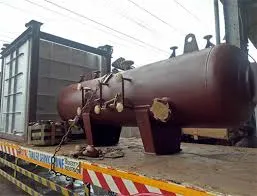famous industrial boiler market
The Famous Industrial Boiler Market Trends, Challenges, and Future Directions
The industrial boiler market stands as a critical component in various sectors, including manufacturing, energy, food processing, and textiles, among others. As industries evolve and demand for energy-efficient solutions rises, the landscape of the industrial boiler market is transforming rapidly. This article explores the trends, challenges, and future directions in this vital sector.
Understanding Industrial Boilers
An industrial boiler is a key piece of equipment that generates steam or hot water for various industrial processes. They are utilized for power generation, heating, and generating steam for diverse applications like sterilization and pasteurization. The efficiency, design, and type of fuel used in these boilers can significantly impact operational costs and environmental emissions.
Current Market Trends
1. Increased Demand for Efficiency and Sustainability One of the largest trends in the industrial boiler market is the growing demand for energy-efficient boilers. Industries are focusing on reducing their carbon footprint and increasing operational efficiency, leading to investments in innovative technologies such as condensing boilers and modular systems. Manufacturers are introducing products that comply with stricter environmental regulations while also enhancing performance.
2. Shift Towards Alternative Fuels With the global push for sustainability, many industrial sectors are exploring alternative fuels like biomass, biogas, and hydrogen. This transition is driven by both environmental concerns and economic factors, as alternative fuels often come with lower operational costs than conventional fossil fuels. Manufacturers are now developing boilers optimized for these fuel types, promoting cleaner combustion technologies.
3. Digital Transformation and Smart Technologies The advent of Industry 4.0 is also influencing the industrial boiler market. Integration of IoT (Internet of Things) technologies allows for real-time monitoring and predictive maintenance, improving efficiency and reducing downtime. Smart boilers equipped with advanced sensors and control systems can automatically adjust operations based on real-time demand, ensuring optimal performance and energy consumption.
4. Regulatory Compliance and Safety Standards Increasingly stringent regulations and safety standards are shaping the design and operation of industrial boilers. Compliance with local and international regulations concerning emissions and safety is paramount. Manufacturers must ensure that their products meet these standards, leading to a focus on innovation and quality assurance in the design and production process.
Challenges Facing the Market
famous industrial boiler market

Despite the promising trends, the industrial boiler market faces several challenges
1. High Initial Costs Investing in new, energy-efficient boiler systems can be a significant financial burden for many companies. Although these systems often lead to long-term savings, the high upfront costs can deter organizations from making the switch.
2. Technical Skill Shortages As technology advances, there is a growing need for skilled technicians who can operate and maintain sophisticated boiler systems. A shortage of qualified personnel can pose a significant challenge to the effective implementation and operation of new technologies.
3. Long Replacement Cycles The operational lifespan of industrial boilers can extend for several years, meaning that many companies may be slow to adopt new technologies. This long replacement cycle can delay the broader market transformation toward more energy-efficient and sustainable solutions.
4. Environmental Concerns and Restrictions As environmental awareness grows, industries face increasing pressure to comply with emissions restrictions. Transitioning to cleaner technologies may require substantial investments and infrastructural changes that not all businesses are prepared to make.
The Future of the Industrial Boiler Market
Looking ahead, the industrial boiler market holds substantial potential for growth and innovation. The rising emphasis on sustainability and efficiency will continue to drive investment in advanced boiler technologies. Collaboration between manufacturers and end-users will be crucial, enabling businesses to access tailored solutions that meet their specific operational and environmental goals.
Moreover, as alternative energy sources become more mainstream, industries will likely expand their operational paradigms, adopting hybrid systems that combine traditional and renewable energy sources.
In conclusion, the industrial boiler market is at a crossroads, marked by innovation and the need for adaptation. By addressing the ongoing challenges and embracing emerging trends, stakeholders in the industrial boiler market can position themselves strategically for a sustainable and efficient future. As transformative changes continue to sweep through various industries, those who invest in modern boiler technologies will not only comply with regulations but also enhance their competitive advantage in the global marketplace.
-
Top Electric Steam Boiler Manufacturers - High Efficiency SolutionsNewsJul.30,2025
-
Top Electric Steam Boiler Manufacturers – Efficient Industrial SolutionsNewsJul.29,2025
-
Top Electric Steam Boiler Manufacturers | Reliable Industrial SolutionsNewsJul.29,2025
-
OEM Steam Boiler Solutions for Custom Needs | High Efficiency & VersatilityNewsJul.29,2025
-
High-Efficiency Thermal Oil Boiler for Industrial Heating SolutionsNewsJul.29,2025
-
Top Electric Steam Boiler Manufacturers for Industrial EfficiencyNewsJul.28,2025

